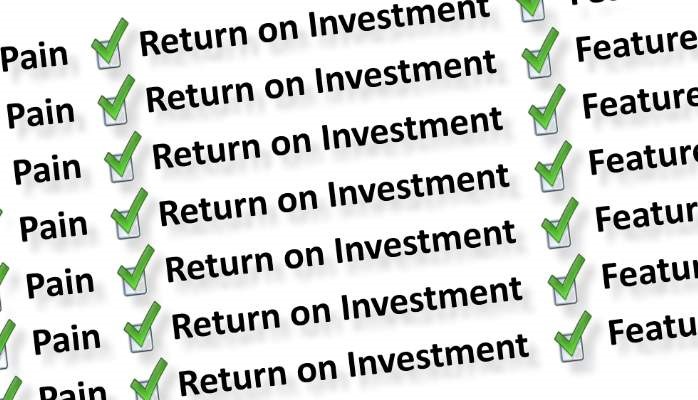It just happened again! I was on a call with a young sales type and was getting the pitch. It started out as, “let me tell you about my product and what its features can do for you…”
If you’re a seasoned sales professional, then you’ve already recognized the problem. You need to listen before you speak. You need to ask before you tell. In other words, you need to identify the pain before you can present your value proposition as the solution to remove it.
Take our product, an Automated Report and Dashboard Generation solution, for example. When we talk with others about our product, we first have to identify their current situation. It will likely fall into one of two scenarios:
- They know that they need a solution to their lack of information problem.
- They have not yet identified that they have an opportunity for improvement.
Starting from the first premise is far better. They know they need a solution and are looking for the best alternative. In the world of industrial reporting, they will have one of two problems to solve. First, they may have to generate Compliance Reports. Compliance Reports are reports that have to be generated to document that they are in compliance, and able to continue their business. Compliance may take the form of EPA emissions reporting, FDA product quality documentation, Thermal Uniformity Surveys (TUS), EPBD (European Performance of Buildings Directive), or any other standards-based documentation requirements. These reports have to get done, whether they want them or not. They are looking to get them done as easily and cheaply as possible. Cost has two components: the initial installation and commissioning cost, and the long-term total cost of ownership. The winning strategy will minimize both costs.
If they are not in the Compliance Report category, then they will be in the second category called Performance Reports and Dashboards. Everybody benefits from improved performance. Be forewarned, performance is a very squishy subject. If you don’t identify a significant area of pain, then you’ll run into the status quo – Do-Nothing – as your primary competition. Change is hard and committing to a direction, product selection, and implementation is a major barrier to entry. Their investment (which can be measured many ways – money spent, time spent, learning), combined with other real or perceived risks (risk of project failure, risk to reputation of stakeholders, visibility of the project, personal limitations and the potential to bring them to light), needs to me balanced with the value of their success. The solution they will want to select will deliver the best (most reliable, most flexible, easiest to learn, easiest to support, makes them look good, delivers over time, etc.) solution for their money.
The second premise takes more discussion. As a salesperson selling a great product, you know that EVERYONE can use your product. It’s your challenge to interact with your potential client to uncover their pain, and then remove it through the excellence of your solution. If the pain isn’t great enough, and you can’t show a major benefit of your final outcome to counter their investment, the value proposition just won’t be there and Do-Nothing, everyone’s greatest competitor, will be the outcome.
What are good examples of pain?
Unfortunately, risk is the pain most identify first. If you’re caught without that report, you’ll risk a major fine. What will that cost you? If you’re missing that batch report, you’ll have to trash that last batch. What will that cost you? Risk is a valid pain, but only those that have experienced it truly know the value of it. Like any risk, the solution is typically to purchase insurance. As you’ve already heard, I’m sure, who likes to buy or sell insurance (apologies to the entire insurance industry).
Long-term reward is a better action plan. Conversely, it is the pain of high costs, lack of flexibility, or under performance of personnel or equipment on which one should focus. These are chronic issues that can always be improved upon.
Identify that pain and then highlight the potential rewards of your solution:
- Improve your operational performance – equipment utilization, reliability, quality
- Improve your business agility – shorter cycles, production flexibility
- Improve your employees – improve awareness, responsiveness, drive continuous improvement, productiveness, error proofing
- Improve your competitiveness – lower your costs, improve quality, deliver faster or on-time
These are the gifts that keep on giving. Every organization needs to be striving for greater transparency and visibility in order to drive continuous improvement at every layer of the organization.
The implementation of tools for automated reporting, performance dashboards, and easy data analysis will lead to benefits in every application, regardless if the need is compliance or performance based.







